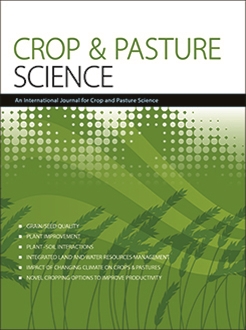Context. Amylose is a type of resistant starch with numerous health benefits and industrial applications. Starch from maize (Zea mays L.) usually has an amylose content of ~25%.
Aims. The aim was to develop high-amylose maize genotypes suitable for human consumption and adapted to Indian conditions.
Methods. Marker-assisted backcross breeding was used to transfer the mutant ae1 allele from a high-amylose donor from the USA into the three parents (HKI 1344, HKI 1378, HKI 1348-6-2) of two high-yielding white maize hybrids (HM5 and HM12) grown in India.
Key results. In converted lines, amylose content was 40.40–58.10% of total kernel starch, compared with 22.25–26.39% in parents. The percentage increase in amylose content was 63.70–153.03%. There was a significant amount of background recovery in each backcross generation: 66.80–79% in BC1F1, 72.85–88.60% in BC2F1, and 84.45–93.70% in BC2F2. Overall, the total kernel starch content was reduced (by ~22%) in the ae1-introgressed families.
Conclusions. The converted lines developed in the study are enriched with kernel amylose while showing significant background recovery.
Implications. The high-amylose lines developed may be highly beneficial for diabetic patients and in the bioplastics industry, and should be suitable for growing under Indian conditions.






